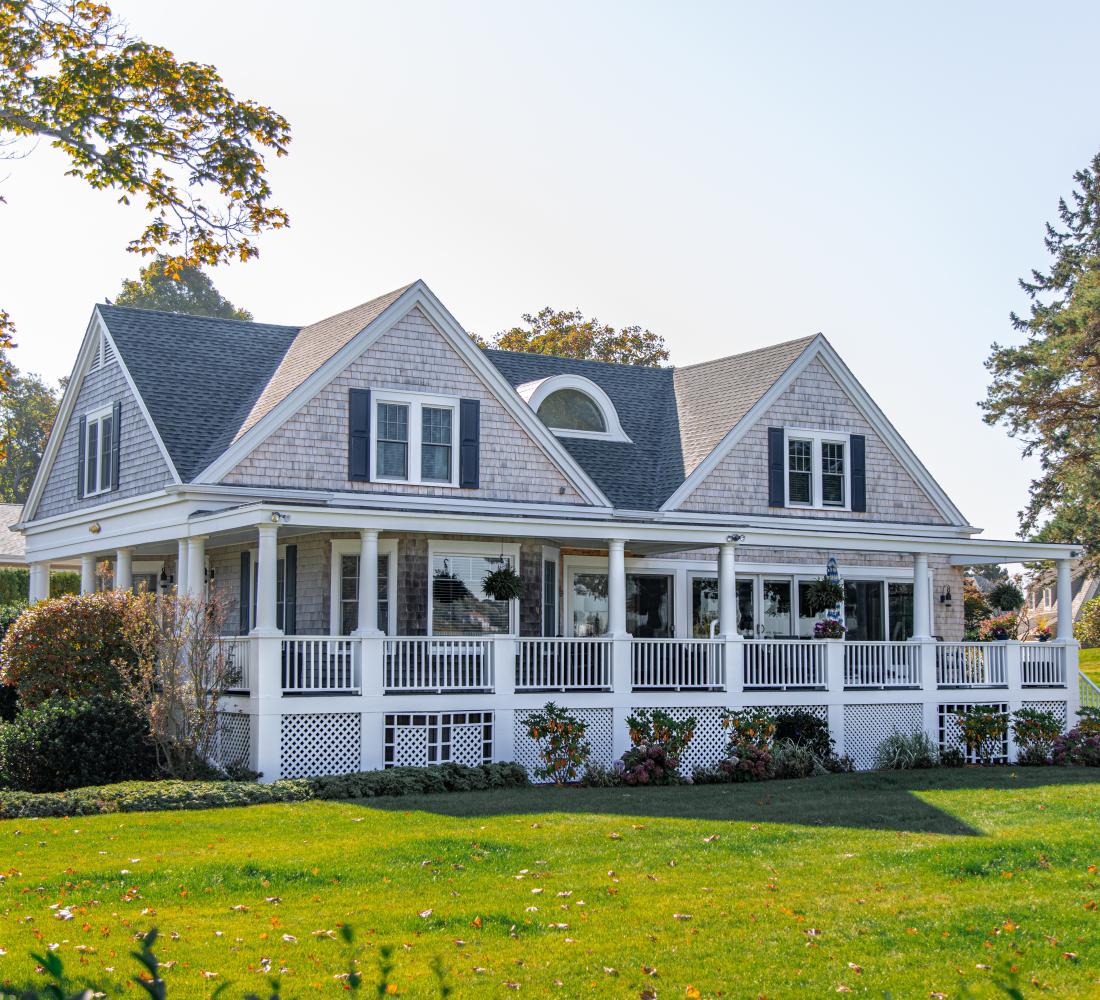The American Dream of homeownership is a goal that many people strive for. It’s a symbol of success and financial stability. However, buying a home isn’t for everyone, and in some cases, renting may be the better option. The decision to rent or buy comes down to personal preference, financial stability, and life goals. In this article, we’ll dive into the pros and cons of both options and help you decide which one is right for you. Let’s get started!
Pros of Buying a Home
If you are thinking about buying a home, there are numerous advantages you should consider. Here are some of the pros of purchasing your own house:
1. Equity Building
Purchasing a home can be a sound investment that builds equity with every mortgage payment. With time, your home appreciates and when it comes time to sell, you can usually sell it at a higher price than you originally paid, especially after factoring in improvements you have made.
2. Freedom of Choice
When you buy a home, you have the freedom to do whatever you want with it. You can add rooms, change the paint color or landscape the yard according to your taste. Homeownership is a way to establish yourself in a community and create a sense of belonging.
3. Tax Benefit
Owning a home comes with many benefits, including tax breaks. You may claim deductions for mortgage interest payments, state and local property taxes, and some other expenses related to homeownership.
4. Stability
Buying a home is a long-term investment, and can provide a more stable living situation. Owning a house gives a sense of security and comfort, and often a feeling of settling down and creating a foundation for the future.
5. Potential Income Opportunity
Investing in rental property has become more popular, and buying a home can be an opportunity for a potential income stream. You can rent out your home or dedicate a portion of it as a rental property, creating extra cash flow.
In summary, buying a home gives you the chance to build equity, establish roots in a community, receive tax benefits, find stability, and create potential income opportunities. However, it is important to note that there are also disadvantages to homeownership, which should be carefully considered before making a decision.
Cons of Buying a Home
Buying a home may seem like the American dream, but there are some downsides that are important to consider. Here are some cons of buying a home:
- Responsibility for repairs and maintenance: When something breaks in your home, it's on you to fix it. This can be costly and time-consuming.
- Less flexibility: If you need to move for work or personal reasons, selling a home is a much more complicated process compared to ending a rental agreement. Plus, if you buy in a declining market, you could lose money when you sell the home.
- Upfront costs and ongoing expenses: Purchasing a home typically requires a large upfront payment, including a down payment, closing costs, and other fees. Some ongoing expenses can include property taxes, homeowner's insurance, and utility bills.
- Investment risk: Owning a home doesn't always provide a solid return on investment. Home values can fluctuate based on the economy, location, and other factors. Furthermore, mortgage interest rates and property taxes can change, affecting the cost of owning a home.
As with any investment, it's important to weigh both the pros and cons of buying a home before making a decision. While it may be the right choice for some people, it's not for everyone. As personal finance expert Jane Bryant Quinn once said, "Owning a home is a keystone of wealth, both financial affluence and emotional security." However, it's important to remember that owning a home comes with responsibilities and expenses that renting does not.
Pros of Renting a Home
While buying a home comes with the promise of building equity and owning a valuable asset, renting may be a better option for some individuals depending on their lifestyle and personal finances. In fact, there are several compelling reasons why someone might choose to rent instead of buying.
Pros of Renting a Home
- Flexibility and Mobility: Renting allows for greater flexibility and mobility. If you're someone who enjoys changing scenery or frequently relocates for work, renting provides an easy way to switch homes or even cities without the commitment of homeownership.
- Lower Upfront and Maintenance Costs: One major perk of renting is the absence of hefty upfront costs, such as down payments and closing costs, which can take years to recoup through building equity. Additionally, maintenance and repair costs are usually the responsibility of landlords, freeing renters from unexpected expenses.
- Access to Amenities: Many rental properties come with access to a range of amenities such as pools, fitness centers, and recreation rooms that might be difficult to afford or maintain as a homeowner.
One of the biggest advantages of renting is the flexibility and convenience it affords. Moving can be an expensive and stressful process, so renting may be the better choice for those who value mobility. Additionally, renting can be a cost-effective choice, as it often avoids significant initial costs associated with homeownership. Finally, renters can enjoy the convenience of access to amenities without the extra work and cost of upkeep.
Cons of Renting a Home
When it comes to renting a home, the major disadvantage is the lack of ability to build equity. As a renter, you're paying to live in someone else's property and not creating anything of value for yourself. While you may save money on maintenance and repairs, you can't make any upgrades to the property without the landlord's permission. Furthermore, you may be subject to rent increases or have to switch residences because the landlord decides to sell the property or move themselves. In addition, renting doesn't give you the same stability as homeownership and you may have to move frequently, causing stress and inconvenience. Finally, while renting may seem cheaper in the short-term, over a long period of time, you could end up paying more in rent than you would on a mortgage if you had purchased a home.
However, for those who value flexibility and don't want to be tied down to a single location or the responsibilities of homeownership, renting may be the better option. Renting allows you to move easily and save money on maintenance and repair costs. Additionally, it's usually less expensive upfront as you won't need a down payment or to pay closing costs. Finally, as a renter, you don't have to worry about property taxes or homeowner's insurance, relieving some financial stress. But it's important to weigh all the factors and make a decision that ultimately makes the most sense for your financial situation and lifestyle. Remember, buying a home is a big investment, but it can bring many benefits, such as financial security and the ability to customize your space to meet your needs.
Factors to Consider
When making the decision between renting and buying, there are several factors to take into consideration. While the financial aspect is certainly important, it's not the only thing you should think about. Here are a few other factors to weigh before making your choice:
Location
One of the biggest advantages of renting is flexibility. When you rent, you can easily move to a new location if you change jobs, get married, or simply want a change of scenery. Buying a home ties you down to a location for a longer period of time, which could be an issue if you're unsure about your future plans.
Maintenance
Renting usually means landlords are responsible for most maintenance and repairs. This could save renters lots of money and effort: no need to worry about fixing the leaky faucet or replacing the roof. However, this may not be the case for all rental situations. Check your lease carefully and be sure to ask about maintenance responsibilities before signing on the dotted line.
Equity
When you buy a home, you're building equity, the value difference between the home's market value and your outstanding mortgage balance. This is one of the most significant advantages of buying a home. Even if you sell later and don't make a huge profit, you could still recoup some of your investment. With renting, you're not building equity, and rent prices could continue to rise year after year.
Lifestyle
Your personal lifestyle is also an essential factor to consider when making the decision to rent or buy. If you're a busy professional and don't want to spend your weekends mowing the lawn or fixing the plumbing, renting may be a better choice for you. If you have pets, purchasing a home with a yard might be the better option. And if you're unsure which would better fit your lifestyle, consider talking with friends and family about their experiences or consulting with a real estate agent.
Considering these factors will help you make the right decision on whether to rent or buy your next home. Remember, your options are not limited to these factors, but thinking them through is a good start to get the bigger picture.
Conclusion
It's clear that deciding between renting and buying a home is a personal choice. Some people may find more benefits to renting, while others may see more pros in purchasing a home. It's important to weigh all the factors that come with each option. Consider not only your current lifestyle but also your future plans.
Ultimately, the key is to make a decision that will best suit your needs -- both in the short and long term. It is also essential to remember that both buying and renting a home come with their own unique sets of benefits and drawbacks. Before making a decision, consider all the factors of each option and make a choice that you feel comfortable with.
It’s worth noting that no matter what you choose, make sure that it aligns with your current financial situation. Whether it is buying or renting a house, you'll need to ensure that you can afford it. Don't stretch beyond your means. Set a budget that you can work with.
Research your current market conditions, use available resources such as online loan calculators or housing affordability indices. Also, get professional advice from a licensed real estate agent or financial adviser.
Remember, the best decision is one that you make based on your needs, your budget and your individual finances. Whatever option you choose, it's important to make a choice that will help you to achieve your long-term financial goals.
 Frank K. Meyer
Frank K. Meyer 


